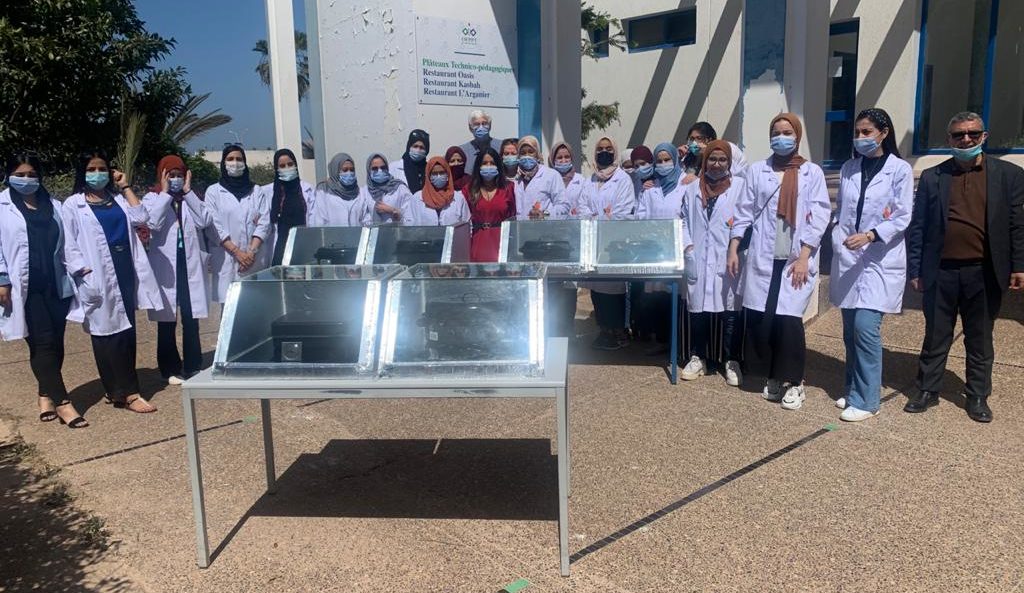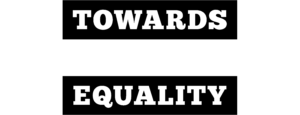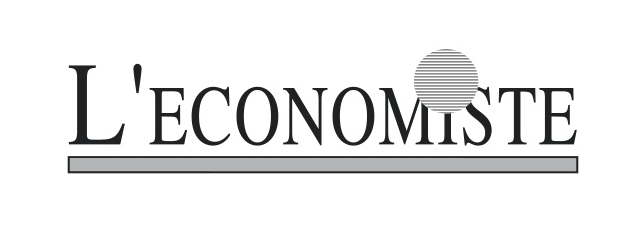“Solar ambassadors” for the energy transition

20 young female technicians from Morocco’s Souss-Massa region were trained to make solar cookers. Traditionally, wood and butane gas are used, especially in the rural world, for cooking, despite their negative impact on people’s health and the environment. – Credit: WECF
In Morocco, a training program in management and marketing of solar ovens and cookers is helping women in rural areas to create their own cooperatives. The aim is to contribute to inclusive and climate-resilient development in the regions and to promote gender equality.
By Mohamed Ali Mrabi, L’Économiste (Morocco)
Building a more sustainable world alongside women while enabling them to improve their income and living conditions. That is the goal of the Faredeic project (For it’s acronym in French, which means Argan and Rural Women Engaged for Inclusive Economic Development and Climate). It was created in Morocco, one of the African countries most threatened by climate change, which suffers an increased pressure on natural resources, according to the Intergovernmental Panel on Climate Change (IPCC). Today, each citizen has access to 600 cubic metres of water per year on average, four times less than in the 60s. Hence the importance of implementing innovative solutions, to favour both the energy transition, particularly in the rural areas, and women’s inclusion.
Locally, the project launched in 2019 is led by the international network Women Engage for a Common Future (WECF, an international network of women’s and environmental organizations), and its local partners; the Association for Renewable Energy and Sustainable Development (AERDD), the Mohammed VI Foundation for the Research and Conservation of Argan Trees (a local endemic tree, and the second most abundant in Morocco) and REMESS (Moroccan Network for Social and Solidarity Economy).
The goal is to develop a local sector of renewable energy through the creation of energy cooperatives led by women, to produce simple and affordable solar solutions such as cookers, dryers, and ovens. Indeed, while many international organizations such as the United Nations agree on the fact that women are the most affected by the harmful effects of climate change, they are often dismissed in the response to this major challenge.
As sustainable alternatives, these cookers contribute to the involvement and recognition of women in the energy transition, the founders of this program explain. In order to do so, they rely on the economic, social, and environmental role of these women, who are active in agricultural and argan cooperatives and using ancestral, eco-friendly techniquest. All the while in a country where wood and butane gas are traditionally used for cooking food, particularly in rural areas, despite their negative impact on people’s health and the environment.
The three-year-long project required USD 1 million (840 000 euros), of which USD 452 000 were financed by the French Development Agency (AFD). The remaining funds are provided by the French Ecological Transition Agence (ADEME) and the Foundation of France.
Overall, the project hopes to raise awareness about the advantages of the energy transition and green tech among 600 women, through meetings and workshops. Among them, only 40 cooperatives’ directors will start manufacturing simple and environmentally-friendly solutions dedicated to agricultural and argan oil production, or fisheries in two regions — Tangier-Tetouan, northern Morocco, and Souss Massa, in the South. The latter has been hit hard by climate change, but it has an exceptional rate of sunshine of over 300 days per year.
At the end of the program, scheduled in a few months, 40 young women technicians will be trained in manufacturing solar thermal technologies. The best among them will be selected and further supported to create their own energy cooperatives. They will also benefit from a capacity-building program on management and sustainable production, dedicated to rural businesses.
To cut, assemble and build
If the project was launched in 2019, the first training sessions for the manufacturing of solar cookers, led in partnership with the French company Four Solaire Developpement (FSD) and the National Institute of Solar Energy (INES),didn’t start until late 2020.
Despite the health crisis and the adaptations required to set it up, the trainers and partners from FSD and INES traveled to both regions. The training consisted of preparing, cutting, and assembling the cookers, but also understanding the issues related to solar energy and its use for cooking and processing food products, INES officials say.
In the area of Tangier-Tetouan, 18 young women technicians were trained during these sessions. In the South, this first phase targeted trainers from the OFPPT (Office of Vocational Training and Work Promotion), which will be responsible for training in turn 20 young women.
Jams, meat, and tagines in solar cookers
“Enthusiasm and good humor were on the agenda for this successful week, which resulted in the manufacture of a dozen cookers and a demonstration session of their use with jams, meat, and tagines cooking,” the WECF says.
Launched last March and April in both regions, the second phase taught another group of rural women how to manufacture solar cookers. The young technicians learned how to prepare, cut and assemble the cookers, in addition to theoretical manufacturing techniques, the founders of the project explain.
Following these two sessions, 10 female technicians out of the 40 who were trained in the targeted regions will be selected to become “solar ambassadors”. This selection will occur based on “the young women’s feedback on their training, their motivation to pursue the project, and on their results on the theory exam.” They will then be further supported to create their own energy cooperatives and promote their locally manufactured solutions. A major challenge for these women whose contribution could help the sustainable development policy of their territories.

This article is being published as part of “Towards Equality”, an international and collaborative initiative gathering 15 international news outlets to highlight the challenges and solutions to reach gender equality.




